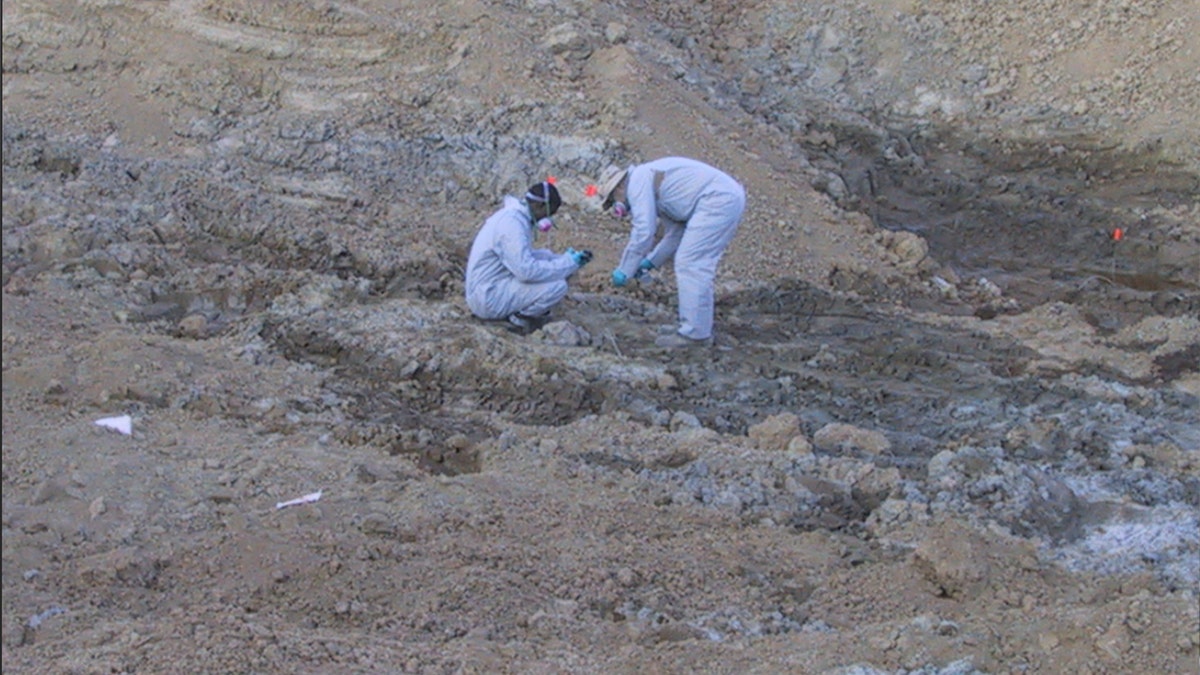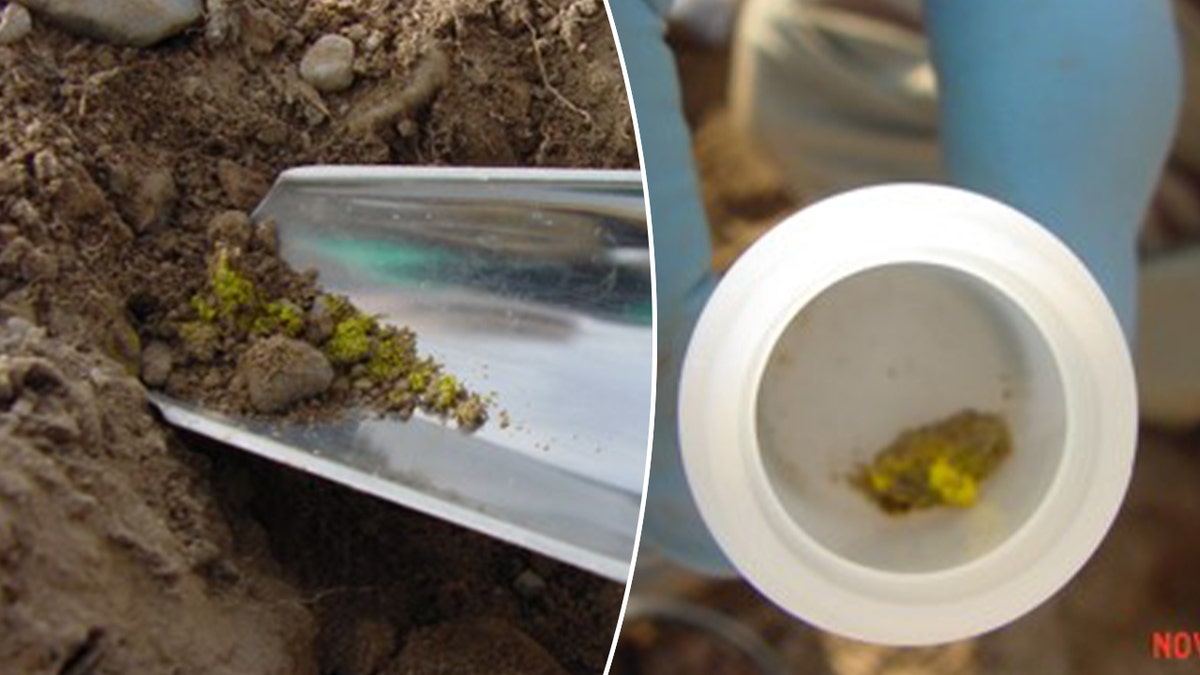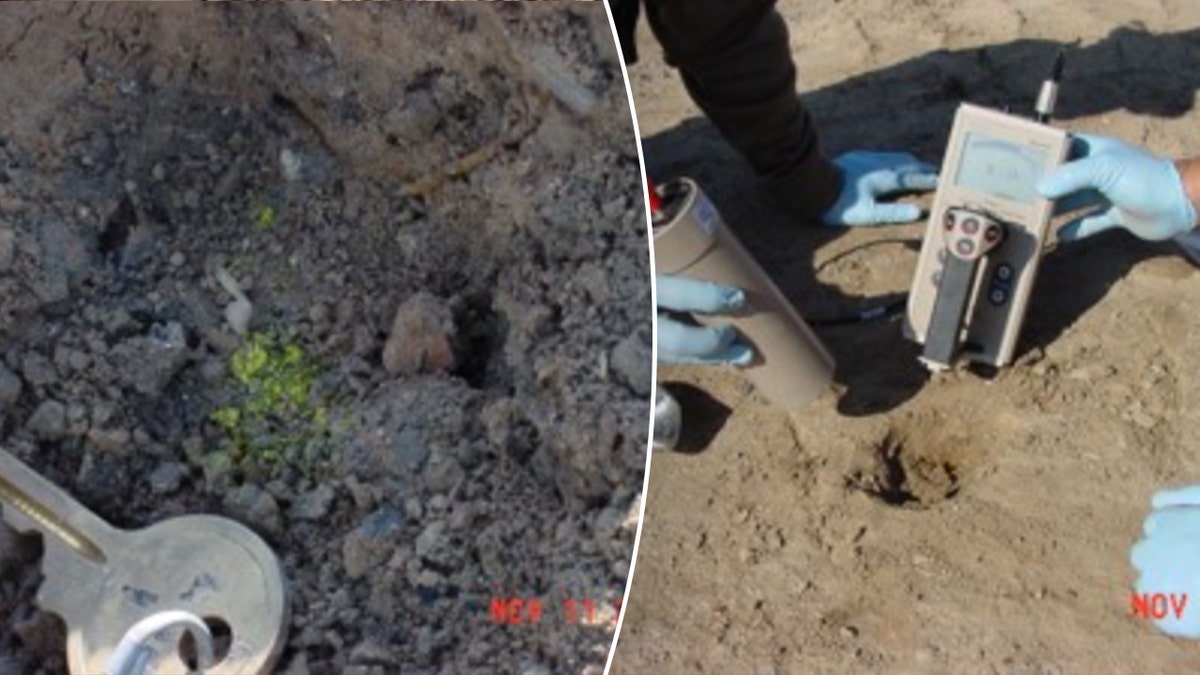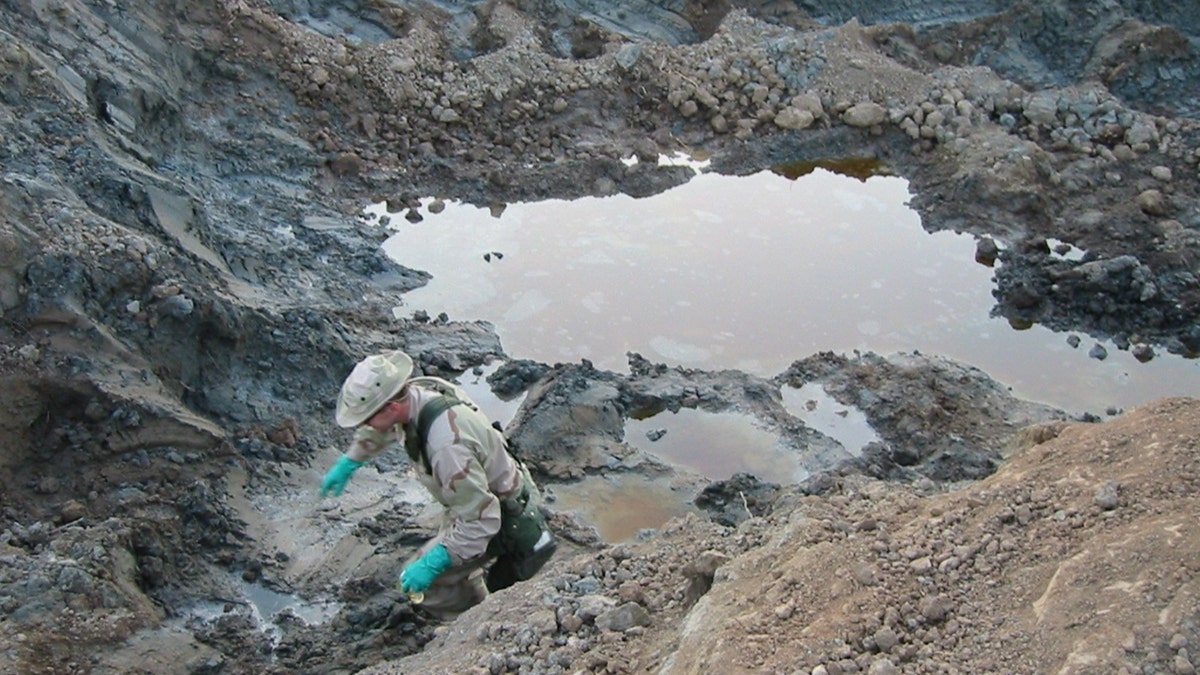Rep renews push for support for K2 veterans and their mysterious illnesses: ‘Long past due’
Rep. Mark Green, R-Tenn., is calling on the Pentagon to study a connection between time at Karshi-Khanabad Air Base in Uzbekistan and the illnesses many veterans developed after toxic exposure.
At the former Soviet base-turned-CIA black site and U.S. military base in Uzbekistan, researchers knew early on danger lingered not just from the enemy but from the ground itself.
Karshi-Khanabad Air Base, known as K2, was a launchpad for U.S. operations into Afghanistan after 9/11. But for thousands of American troops who served there, it may have been a death sentence.
Matthew "Nick" Nicholls, an Army environmental technician and preventive medicine specialist, was part of an early team that assessed the environmental hazards at K2.
"It is probably the most toxic soup of chemicals that any service member has ever been exposed to," Nicholls told Fox News Digital.
Yellowcake uranium oozed from the ground. Jet fuel and volatile chemicals from decaying Soviet rocket bunkers polluted the soil and air. Dangerous fumes hung over the base like the fog of forgotten war.
Nicholls and his team warned commanders, providing recommendations like laying down gravel to suppress toxic dust and restrictions on how long personnel could work in high-risk zones. Some precautions were taken, others weren’t.

Researchers excavated "Soviet-era jet fuel that was pure enough to put into an engine and work" at K2 base. (Obtained by Fox News Digital via Matthew Nicholls)

Images show visible "yellowcake" found in the ground at the K2 base. (Obtained by Fox News Digital/Matthew Nicholls)
"People that I am friends with are actively dying from cancer right now," Nicholls said. "These are weird ontologies that are striking down people who are very young, people in their 20s, 30s, 40s, in the prime of their life."
K2 veterans have reported a disturbing trend of rare and aggressive cancers, reproductive organ diseases, osteoarthritis and sudden, unexplained deaths.
"These are not the cancers that young people normally get," Nicholls said. "Their stories are not really able to be told. That’s the tragedy of it."
"These people went there right after 9/11 to avenge the deaths of those who were murdered," Nicholls said. "Yet we had this launching pad in Uzbekistan that was left in such derelict condition by the Soviets."
Between 2001 and 2005, more than 15,000 U.S. service members passed through K2. Thousands more served as contractors. Many now find themselves struggling to get adequate medical care or recognition from the Department of Veterans Affairs (VA).
The VA recognizes such veterans "may have encountered several hazardous exposures," and the Department of Defense conducted an initial study to look at cancer outcomes. But that study was based only on a few cases of each type of cancer and should not be viewed as "definitive evidence of an association with service at K-2," the VA says.
But a spokesperson for Rep. Mark Green said he does not believe these studies were enough, that they did not take the full extent of contamination into account and did not appropriately inform occupants of the base of their exposure risk or account for the full range of diseases that can result from toxic exposures.
"That is why Rep. Green's NDAA (National Defense Authorization Act) amendment calls for a new, fully rigorous epidemiological study to cover these blind spots," the spokesperson said. "There are too many unknowns to call it a case closed."
Fox News Digital has reached out to the VA for comment.
Green, R-Tenn., and Rep. Stephen Lynch, D-Mass., introduced a provision in the 2021 National Defense Authorization Act requiring the Pentagon to complete a study on K2 exposure within 180 days. Four years later, that study remains unfinished.
"This is unjust," Green told Fox News Digital. "There were repeated warnings that service members were being exposed to toxins, and yet their health and safety were ignored by Pentagon leadership of that day."

Researchers test radioactivity at K2. (Obtained by Fox News Digital/Matthew Nicholls)

A researcher explores substances in an excavation pit at K2. (Matthew Nicholls/Obtained by Fox News Digital)
In a letter first obtained by Fox News Digital that went out late Friday, Green is pressing the Pentagon to complete the long-overdue study, a step he argues is essential to ensure K2 veterans receive the care they deserve.
"Because this study has yet to be completed (as far as Congress is aware), many K2 veterans are still waiting to receive much needed care," he wrote. "This is unjust. There were repeated warnings at Camp Stronghold Freedom that servicemembers (sic) were being exposed to toxins, and yet their health and safety were ignored by the Pentagon leadership of that day."
The Pentagon told Fox News Digital it would respond to Green privately.
In 2024, the VA moved to expand access to disability for K2 veterans and lower the burden of proof for the veterans to link their illnesses to their service. But advocates say it wasn't enough.
"The VA is dragging its feet," Green said. "I think it really purely comes down to cost. I get that the VA wants to be judicious, but my God, the numbers here are so convincing. This is long past due."
Green has also introduced new legislation requiring the VA to formally recognize links between K2 toxic exposure and diseases like cancer, ensuring affected veterans qualify for care and benefits.
Toxins at K2 included petrochemicals, volatile organic compounds, depleted uranium, burn pits and tetrachlorethylene, all chemicals associated with long-term health risks.
But K2 veterans are not specifically named in the PACT Act, which expanded coverage for other toxic exposures like Agent Orange and burn pits.
Green, a physician and Army veteran, sees disturbing echoes of past delays.
"Bureaucrats come and go, and bureaucrats have their own agendas," he said. "I want to make sure that it's written in stone and that these guys are not forgotten."


























